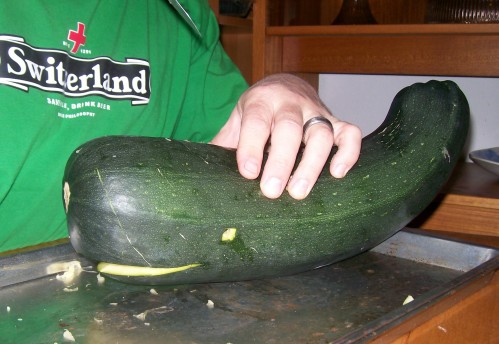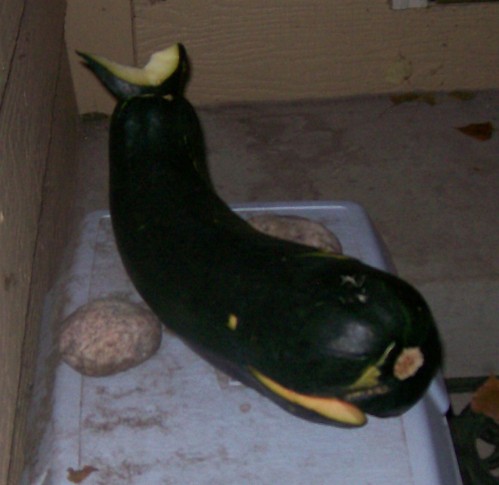Mom recently sent me this poem, and asked for a reaction… hmm…
EACH IN HIS OWN TONGUE by William Herbert Carruth (1859-1924)
A fire-mist and a planet,
A crystal and a cell,
A jelly-fish and a saurian,
And caves where the cave-men dwell;
Then a sense of law and beauty
And a face turned from the clod--
Some call it Evolution,
And others call it God.
A haze on the far horizon,
The infinite, tender sky,
The ripe rich tint of the cornfields,
And the wild geese sailing high--
And all over upland and lowland
The charm of the golden rod--
Some of us call it Autumn
And others call it God.
Like tides on a crescent sea-beach,
When the moon is new and thin,
Into our hearts high yearnings
Come welling and surging in--
Come from the mystic ocean,
Whose rim no foot has trod--
Some of us call it Longing,
And others call it God.
A picket frozen on duty,
A mother starved for her brood,
Socrates drinking the hemlock,
And Jesus on the rood;
And millions who, humble and nameless,
The straight, hard pathway plod--
Some call it Consecration,
And others call it God.
Well, it’s quite beautiful poetry of course.
It also beautifully illustrates how casually and easily (or sometimes intentionally and with great difficulty) we oversimplify and dismiss the complex, beautiful, difficult, or incomprehensible by “calling it God.” You practice every day for a lifetime, hear every sound in your world in the context of music, hear music in your head when there is no sound. By stretching to the very limits of your ability, you give a performance that you think might actually be reasonably adequate, and you are told how wonderful it is that God gave you the talent to do that. Some call it working their butts off, others call it failing to give credit where credit is due.
But what is the author really saying here? The great variety of the animal kingdom, the incomprehensible majesty of autumn and the unstoppable nature of the tides, and humans struggling with determination to survive in difficult circumstances. The problem of evil, the mysteries of nature, anything we don’t understand is “God.”
People seem unable to accept that many things are wonderful and awesome and beyond their comprehension. So much more comfortable to know that “I understand…that God (my personal friend!) is responsible for this wonderful thing!” This makes it accessible, and no wonder; if an all powerful being made these things, then they are no longer particularly wonderful or indeed surprising. He’s all-powerful, right? Surely an all powerful being could have done *anything*, no problem. To the contrary, this knowledge raises the question “is this really the best you can do?” Surely, if a B was the best you could do, than a B would be an excellent grade, but…
This logic applies just as well to the negative. If you’re going hungry, belief that there is a good reason for this makes it easier to bear. But that does not make the belief into truth, and of course calls into question the benevolence of God.
Bathing in an infinity of information, we are all infinitely ignorant. When life makes you aware of this fact, it is overwhelming and, honestly, embarrassing. We’re not supposed to be ignorant, we’re the humans. We’re the smart ones, masters of creation! Tempting, then, to hide from our ignorance. Know that “God is responsible” and you know everything. But you don’t, really, do you?
In the end, what really bothers me about this poem is that it equates “God” with “what really happened that you don’t comprehend.” It says that the question of where credit is due is just world view.
Of course, I disagree. If I take something that belongs to you and claim that it is now mine, this is not a change in world view: I am stealing. If I say that precipitation is caused by water vapor condensing in the upper atmosphere but you say that “the gods are spitting on us”, this is not a difference of world view. You are not describing how rain occurs “in your own words.” You are saying “God did it” because that is easier than understanding what is real.
Religious fundamentalists understand this, but from the other side. They want God to get the credit for everything: evolution, the work I did today, the very fact that I exist. This is not “another way of saying” that they agree with me. They do not. And I do not agree with them.
God is now what God has always been: the unknown. If we don’t understand it, God is always the answer. The current conflict over evolution stems from one simple problem: evolution is not easy to understand without a background in statistics and some fairly heavy reading.




